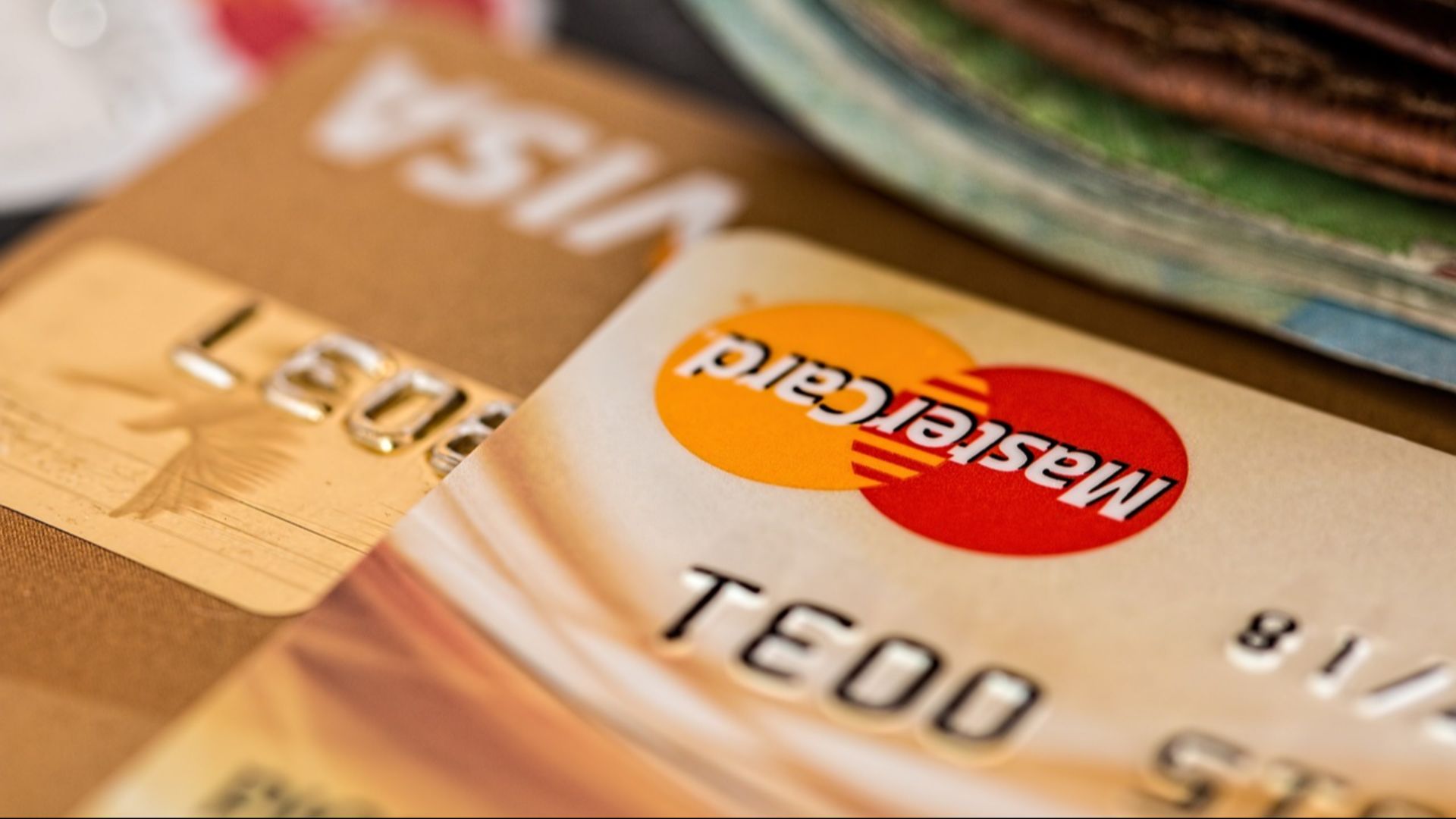Teaching Your Kids To Be Money Smart
Financial literacy is difficult for many adults, and helping your kids to understand how to be money smart can be a challenge. It’s worthwhile, however, as it is one of the most crucial aspects of being an adult, and it’s one of the most neglected topics. Here are some tips to teach your kids how to handle money.
Start Early
If you don’t teach your kids about money, how will they learn? Whether they’re picking things up from others or trying to figure it out on their own, helping them early makes all the difference. Starting early is best, but it’s never too late.
Using Visuals
Piggy banks are a classic way to help kids learn how to save, but if you use a clear jar—it really doesn’t have to be a pig or any other animal—kids see the money growing. It’s a simple way for a child to see the accumulation of money and helps build the idea that saving is important.
Make It A Game
Kids at even a young age can challenge themselves to fill the jar up. It doesn’t mean they can’t spend money or have fun (it shouldn’t be all serious), but there is an excitement to watching it grow, and with time, they will learn to think twice about splurging.
Set An Example
Habits are generally formed when you’re young. Kids are natural observers and will watch you as you spend money. Are you going out to dinner or the grocery store and putting it all on your credit card? You can’t escape using credit cards, but sound habits around their use are a good example to set.
Credit Cards
Help children understand that credit cards don’t equal “free money”. Most adults fall into the trap of using credit to spend more than they have, and this is something kids will pick up.
Teach Them How To Spend Money
You should let your kids spend their money. You don’t want them to fear money but to know how to control it. As they get a bit older, let them handle some of their own transactions, so the concept of what an item costs becomes more evident.
Savings Jars
Let them choose an amount from their savings jar and take it to the store. Seeing the price of items and understanding how much they need to buy them is a crucial lesson. If they have five dollars and want candy, let them figure out how much it is.
Handling Money
Let them physically handle the money in the store and interact with the cashier. That kind of experience helps them relate an item to its worth and helps them understand the concept of receiving change back, a crucial experience in an increasingly paperless money world.
Tweens And Money
As they get older, you can teach them more complex things about money. Once they’re tweens, they can go to the store on their own, and they should be able to handle themselves. If they have an understanding of how money works, they’ll have an easier time on their own.
Budgeting For What They Want
Opportunity cost is a way of understanding that you have saved enough money to buy a specific item, but you will not have enough in your budget for a second item. This helps them with decision-making. What do they want more, or what do they need more?
Stretching Their Dollars
If they know they can only spend a certain amount that week, they can make sound decisions about how they spend their money. This way, they can conceptualize how much their money can be stretched or how far it will go.
Allowances
It’s easier for parents to hand their kids money as needed. The same thing goes for allowances. Giving them $10 a week has no meaning for them if it isn’t attached to a chore—they need to understand that money, for adults, is earned.
 Photo By: Kaboompics.com, Pexels
Photo By: Kaboompics.com, Pexels
Money Is Earned
It’s a hard lesson for many, but the money doesn’t come from nowhere. Once they understand that money is part of a system of earned wages, they can visualize that there are limits. You get a certain amount each week, and you need to make it last, hopefully with some left over for savings.
Credit Cards
One of the most dangerous aspects of credit cards is impulse shopping. It’s something many adults struggle with. Don’t be your kid’s credit card, extending credit past their budgeted savings. It’s hard to do so, but help them understand that there are limits to available funds and going over those limits is a bad habit to develop.
Wait A Day
Another crucial lesson is to wait. Impulse buying causes your dopamine levels to surge. Your body is eager for the pleasure spending money brings. If you want something now, you may not really want it, and waiting a day to purchase a non-essential item can help lessen that craving. The more it costs, the longer you should wait. In the case of kids and their impulsive desires, there’s a good chance they’ll completely forget about it the next day.
Teach Them Generosity
Saving money is crucial, but you also want your children to be generous—this isn’t about teaching them to be cheap or miserly. Help them understand the purposes of charity and get them involved with causes that mean something to them.
Giving Within Their Means
Not only will they learn that generosity is its own reward, but in the end, you do feel good about it. Help them understand, however, that they can’t help everyone and they need to think about where they want their money to go. Giving time instead of money is also a generous gift.
Teens And Money
The teen years are all about impulsivity. Teens are trying to figure out who they are and if they have an endless supply of money from their parents, teens are going to believe that money will always be there and spending money has no consequences.
Teen Independence
Intelligence around money should be pretty advanced by the time they reach high school. They will be spending much of their time outside their parents’ watchful eyes, and independence should be encouraged. However, the habits they pick up as kids and as teens will last a lifetime, and if they’re bad habits, they will be difficult to break.
Being Content
One crucial thing teens need to learn is contentment. They will always want things, especially things their friends have, and you will be fending off your teens from the bad examples of other parents. What lesson will you be teaching your teen if you pay for whatever they desire?
Online Influences
Likewise, teens spend much of their time online and looking at screens, and the online world is filled with temptations, much of them expensive. Seeing how others live on social media sets kids up for comparing their lives (and what they don’t have) with others (who have “everything”).
Wanting What Their Friends Have
It’s not about what you can afford or not afford. With credit, most things can be purchased. Your teen may come to you crying because a friend’s parents bought them a new car. But don’t give in to their pleas. Keeping up with the Joneses is a trap that both adults and teens can fall into. Buying beyond your means for instant gratification is a hard habit to break.
Saying No
If your teen is taught early enough that the money only goes so far, they may resent you at first, but in the long run, they’ll appreciate the lesson. Having healthy savings for the future is worth saying no to things you don’t need.
Bank Accounts
By the time they’re teenagers, they should have their own bank account. Younger children can have accounts too, and in addition to the money jar, birthday money from grandparents can be deposited in their account, and the same thrill of watching the money grow in their money jar can be achieved with bank statements (and they’ll learn about interest and bank fees).
ATMs
With teens, they’ll be more independent, and since bank cards are essentially automatically given out, teaching them restraint is important. ATMs aren’t slot machines, and when they take money out, it stays out.
Debit Purchases
This is where those good habits come into play, because teens need to handle these things on their own. Teach them the value of budgeting so they’re not taking out money from the ATM whenever they want something. Likewise, with debit purchases, your bank balance can disappear quickly if you’re not budgeting and sticking to it.
 Photo By: Kaboompics.com, Pexels
Photo By: Kaboompics.com, Pexels
Managing Their Bank Accounts
Use the money jar lesson they learned when they were younger and apply it to a bank account. Money management is taken to the next level, and they can see their money accumulating, creating the drive to keep it growing.
College Savings
Even if you have funds set aside for their college education, teach your kids to save money themselves. Too many parents simply pay their children’s way through college, and although having the freedom to focus on studying is important, let’s face it, if their way is fully funded, that doesn’t mean they’ll spend all their time studying.
Dedicated College Account
Long before they even apply to college, they should start saving. Even if this money is only a fraction of what they’ll need, they’ll have a sense of accomplishment, and they will understand what goes into saving for things that are expensive. Set up a dedicated college account and let them contribute to their education without guilting them.
Avoid Student Loans
Although student loans should be there for those who truly need them, help them understand that a student loan is not a blank check. It will need to be paid back, often for the rest of their lives. Do everything you can to avoid student loans, as the momentary ease they provide is rarely worth it in the long run.
Education Alternatives
Let them know there are alternatives. If they don’t receive a scholarship, the more expensive schools are out of the question. There’s no shame in waiting a year or taking courses at a community college while they work and save.
Teens And Credit Cards
Don’t give your teens their own credit card, especially if you end up paying the balance. Nothing is more damaging than a credit card with no consequences. Any good you’ve done teaching them about saving money is gone when they have an unrestricted card.
The Reality Of Credit Cards
When they turn 18, they will be swamped with offers for credit cards. Credit card companies want them on board as they become adults and are on their way to school, often living on their own for the first time. Teach them about the predatory nature of these offers, usually with high interest rates.
Earning Money
Teach your kids about how you can earn money. It starts with chores, where their allowance is tied to helping out with the house. As they get older, you can introduce the concept of working outside the home.
Tweens And Working
As tweens, when they have free time, they will tend to spend it “hanging out” with less of the structure they had when they were younger. Let them know that free time is important, but in addition to required tasks such as homework and chores, setting aside time for paid work is crucial.
Encourage Entrepreneurship
This doesn’t mean working countless hours in drudgery, but simple things like mowing lawns and shoveling snow will help them to learn responsibility. It also will give them a sense of entrepreneurship as that would be their own business, seeking out clients, working according to schedules, and understanding what their time and effort is worth.
Teach Them Not To Fear Money
In the end, you don’t just want your kids to understand money, you also want them to not fear it. Nothing is worse than dreading to check your bank balance because you haven’t been careful and it might be far lower than you wish. With understanding and without fear, your kids can learn to handle their money and save for their future.
You May Also Like:
Why You Need To Teach Your Kids About Money
Wealth-Building Tactics Used By The Rich










































